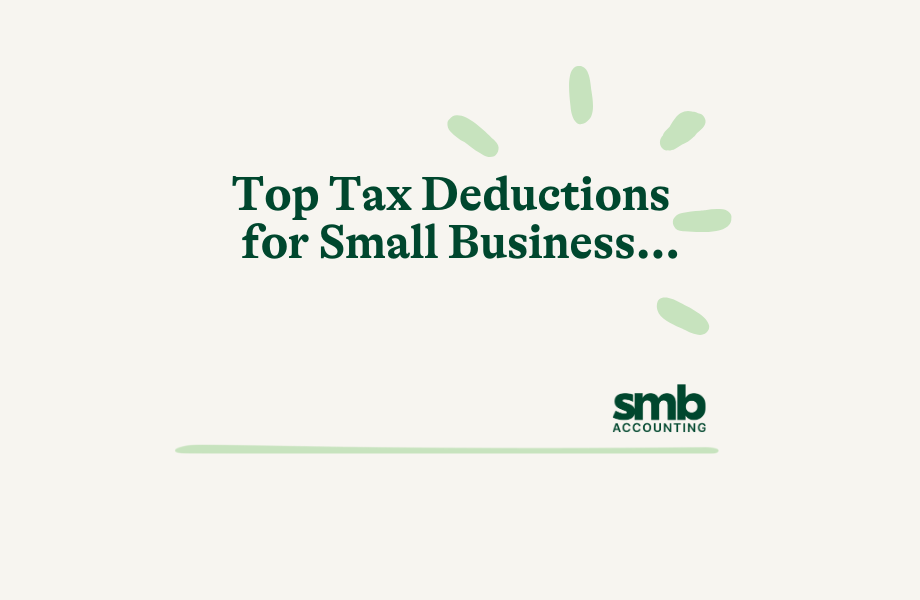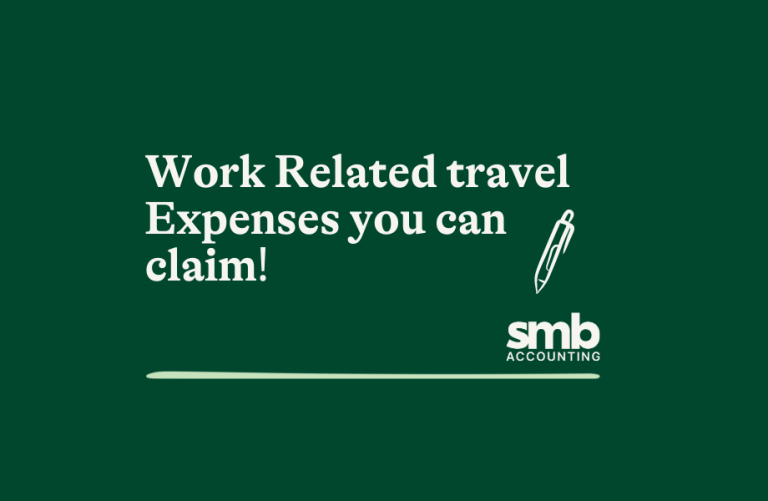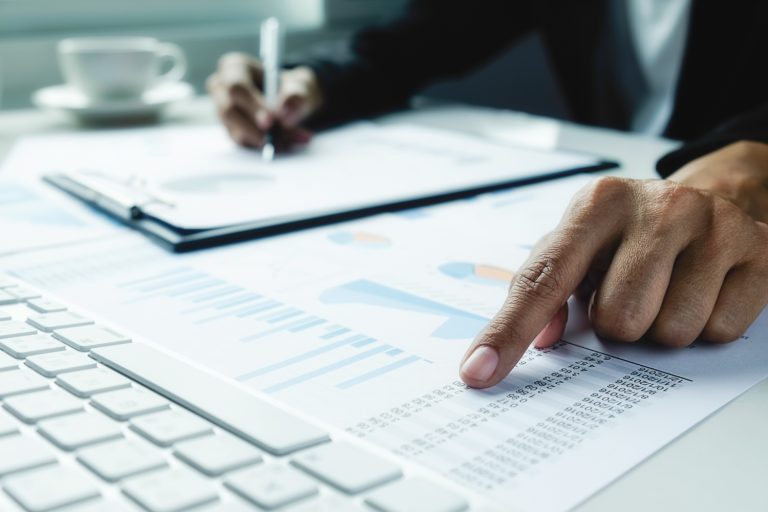[av_textblock fold_type=” fold_height=” fold_more=’Read more’ fold_less=’Read less’ fold_text_style=” fold_btn_align=” textblock_styling_align=” textblock_styling=” textblock_styling_gap=” textblock_styling_mobile=” size=” av-desktop-font-size=” av-medium-font-size=” av-small-font-size=” av-mini-font-size=” font_color=” color=” fold_overlay_color=” fold_text_color=” fold_btn_color=’theme-color’ fold_btn_bg_color=” fold_btn_font_color=” size-btn-text=” av-desktop-font-size-btn-text=” av-medium-font-size-btn-text=” av-small-font-size-btn-text=” av-mini-font-size-btn-text=” fold_timer=” z_index_fold=” id=” custom_class=” template_class=” av_uid=’av-m5a3hdrr’ sc_version=’1.0′ admin_preview_bg=”]
Navigating taxes can be tricky for small businesses. Knowing which deductions are available can save you a lot of money and that is why it’s important to be informed about the top tax deductions.
Tax deductions reduce the amount of income that is subject to tax, helping you keep more of your money. They can come from various business expenses like equipment, travel, and professional fees. Using accounting software like XERO, MYOB, or QuickBooks can also help you track these deductions easily.
In this article, we will explore the key tax deductions that small businesses can claim. We’ll also give you tips on how to maximise these deductions using popular accounting tools. Finally, we’ll point out some common mistakes to avoid when claiming these deductions.
Understanding Tax Deductions: A Quick Guide
Understanding tax deductions is crucial for small business owners. A tax deduction reduces your taxable income, lowering your tax bill. This allows you to keep more of your hard-earned money. Deductions can be claimed on various expenses that are incurred during the day-to-day running of your business.
First, keep good records – Accurate documentation of expenses ensures you claim all eligible deductions. Accounting software like XERO, MYOB, or QuickBooks can be used to track every business expense. This makes it easier to pull up documentation when needed.
Next, know the types of deductions available – Some expenses are straightforward, like office supplies. Others, like depreciation or vehicle expenses, might need more explanation. Depreciation, for example, is spreading out the cost of an asset over its useful life. Knowing how to categorise these expenses correctly is key to maximising your deductions.
Essential Tax Deductions for Small Businesses
Depreciation of Assets
Depreciation allows you to spread the cost of big-ticket items over several years. This includes things like computers, office furniture, and machinery. In Australia, you can generally depreciate assets based on their effective life. If an item has a longer effective life, you can spread the deduction over a longer period. Some small businesses may also qualify for instant asset write-off, letting you claim the full amount in the year the asset is purchased.
Home-Based Business Expenses
If you run your business from home, you can claim a portion of home expenses. This includes utilities, rent, and even mortgage interest (seek advice). You can claim a percentage based on the portion of your home used for business. For instance, if your office takes up 10% of your home, you can claim 10% of your utility bills. Remember to keep detailed records and floor plans to substantiate your claims.
Vehicle and Travel Expenses
Travel is often a significant part of doing business. If you use your personal vehicle for business purposes, you can deduct the related expenses. This includes fuel, maintenance, and insurance. You can choose to keep a logbook to track actual expenses or use the cents-per-kilometre method. Business travel expenses, like flights and accommodation, are also deductible. Keep receipts and travel itineraries to support your deductions.
Professional Fees and Subscriptions
Professional fees can also be claimed as tax deductions which include hiring accountants, lawyers, and consultants. Subscriptions for industry journals, memberships, and other professional organisations are also deductible. These expenses help keep you informed and compliant, making them a necessary part of running a business.
Maximise Deductions with XERO, MYOB, and QuickBooks
Overview of Features for Tracking Deductions
Using accounting software like XERO, MYOB, and QuickBooks can make managing your tax deductions easier. These tools offer features that help you track expenses and categorise them properly. For instance, XERO has a “dedicated expenses” feature that separates personal and business expenses. MYOB helps you organise invoices, bills, and payments all in one place. QuickBooks offers a mobile app that lets you snap photos of receipts and automatically categorises them.
Step-by-Step Guide on Setting Up Deduction Categories
To maximise deductions, set up your categories correctly. Here’s a simple guide:
- Open your accounting software and go to the settings menu.
- Find the section for expense categories.
- Add new categories relevant to your business, like “Vehicle Expenses,” “Office Supplies,” and “Professional Fees.”
- Make sure to link each category to an appropriate account.
- Save these settings and start tagging your expenses as they occur.
This step ensures that every expense is tracked and categorised. It helps you keep a clear record, making tax time easier.
Tips for Accurate Record-Keeping
Accurate record-keeping is essential for claiming deductions. Here are some tips:
– Always keep receipts and invoices. Use your accounting software to upload and store them.
– Regularly reconcile your bank statements with your expense records. This helps catch any discrepancies.
– Use the software’s reporting tools to generate monthly or quarterly reports. Review these to ensure everything is recorded correctly.
– Don’t mix personal and business expenses. Keep a separate bank account for your business to simplify tracking.
These tips will help you stay organised and ensure you claim every deduction you’re entitled to.
Common Mistakes to Avoid When Claiming Deductions
Overlooking Small Business Concessions
Small business concessions can offer significant tax relief, but they’re often overlooked. These concessions include instant asset write-off, simplified depreciation, and the small business income tax offset. Make sure to check which concessions you qualify for each year. Doing so can save you a lot of money.
Misclassifying Workers
Misclassifying workers can lead to big tax issues. For instance, treating an employee as a contractor can result in penalties and back taxes. Employees are entitled to superannuation, leave entitlements, and other benefits, which contractors are not. Always properly classify your workers to avoid potential problems.
Failing to Keep Proper Documentation
One of the biggest mistakes is not keeping proper documentation. The Australian Taxation Office (ATO) requires evidence for all claimed deductions. This includes receipts, invoices, and travel logs. Failing to keep these can lead to denied deductions or penalties. Use accounting software to store digital copies of your documents and back them up regularly.
Conclusion
Understanding and claiming the right small business tax deductions can significantly benefit your small business. By tracking your expenses, using the right accounting tools, and avoiding common mistakes, you can maximise your savings. Remember, proper documentation is key. Keep thorough records to support your claims and ensure compliance with ATO regulations. Stay informed and proactive about your deductions as you navigate through the year.
For expert advice and personalised support with your small business taxes, contact SMB Accounting. We’re here to help you maximise your tax savings and streamline your accounting processes. Contact us today for a consultation.
[/av_textblock]




